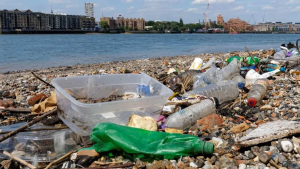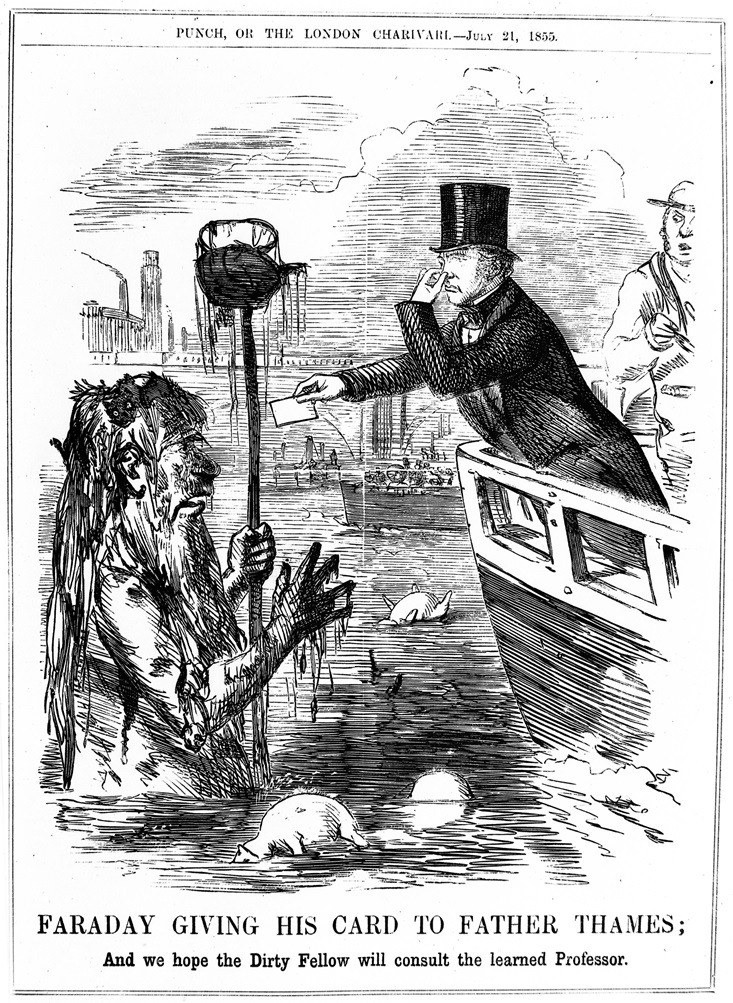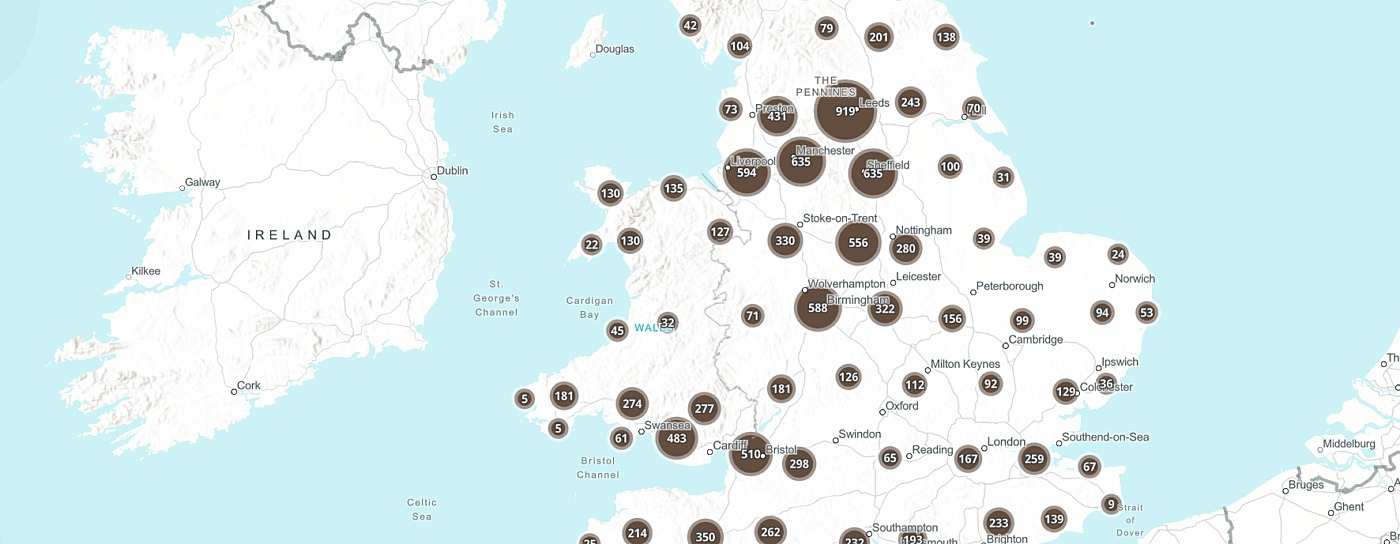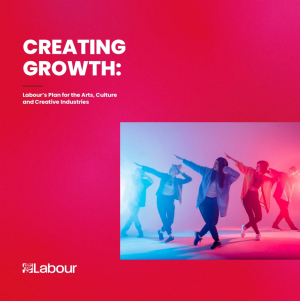
Culture Creation versus Commodity Creation: Labour's Plans for the Arts, Culture and Creativity
Jon Baldwin and Brett Gregory analyse Labour’s Plan for the Arts, Culture and Creative Industries
On the 13th March 2024 Bracknell News reported that Sir Keir Starmer will use a speech to commit to ensuring the arts are ‘for everyone, everywhere’ under a future Labour government. This was an event which launched the document ‘Creating Growth: Labour’s Plan for the Arts, Culture and Creative Industries’ at the Labour Creatives Conference.
The glossy brochure reads like a description of a story rather than a story itself. Like the lost art of political pamphleteering, it makes promises it needn’t keep and promises it needn’t promise. Labour will do this and that for the benefit of the arts, culture and creative industries; it will put money here, support those there, scaffold this group, secure that role, lift up them, open opportunity and, not only that, it will be green, sustainable and inclusive. Aren’t the arts brilliant! Isn’t culture great! Look how much money they all make!
And what can be said of the hipster Islington interns who produced this neoliberalist napkin during their smashed-avocado and decaf latte tea-break? A lugubrious legion of lickspittles paying lip service to political puffery, bringing to mind a quote from Jorge Luis Borges: ‘They seek neither truth nor likelihood; they seek astonishment. They think metaphysics is a branch of the literature of fantasy.’
Any commitment to the arts is to be welcomed. We live in an age of philistines and boors. The arts, culture and creativity inside and outside of our education system has been downgraded and devalued by the Tories. Creative subjects have been squeezed out of the curriculum by ministers, and their lackeys have fired phoney shots from their cottage industry ‘culture war’ which, in truth, is a proxy for an actual class war. Cultural Studies text books may soon have blank pages where the history of Marxism used to be written.
Jeremy Corbyn’s 2019 A Charter for the Arts was only 7 pages long. ‘Creating Growth’ is 19 pages long. The word ‘socialist’ appears three times in Corbyn’s document and the word ‘economy’ appears twice. In Starmer’s magnum opus ‘economy’ features ad nauseam, alongside ‘business’, with ‘socialist’ not featuring once.
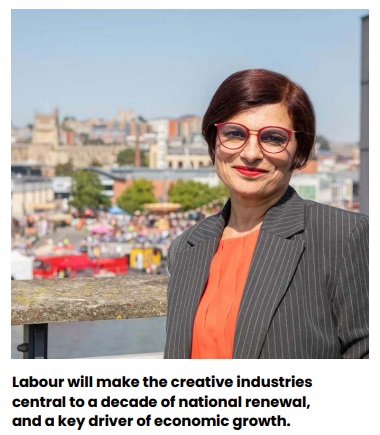
The foreword for Starmer’s ‘Creative Growth’ is written by Thangam Debbonaire. Corbyn’s ‘Charter for the Arts’ opens with ‘The Socialist Vision of Jennie Lee.’ Debbonaire was educated at two private schools, Bradford Girls' Grammar School and Chetham's School of Music, and then she went off to Oxford. Jennie Lee was educated at the state school, Beath High, and was the daughter of a miner. Lee's maiden speech at Westminster was an attack on the budget of Winston Churchill, accusing him of ‘corruption and incompetence.'
Debbonaire resigned her role of shadow Arts and Culture Minister due to her lack of confidence in Jeremy Corbyn. Lee was instrumental in founding the Open University and principle of open access to higher education for all. Lee’s husband, Nye Bevan, was the founder of universal, free healthcare through the NHS. Debbonaire is a school governor, a trustee of the University of Bristol Students’ Union (UBU), member of the local traffic action group, and co-founder of the House of Commons string quartet ‘The Statutory Instruments’ who perform culture with class - social class.
In her foreword Debbonaire writes that ‘the UK has won the highest number of Nobel prizes for literature and the second highest number of acting Oscars this century.’ Really? Wasn’t V. S. Naipaul (2001) from Trinidad and Tobago, and Doris Lessing (2007) from Iran? Isn’t Kazuo Ishiguro (2017) from Japan, and Abdulrazak Gurnah (2021) from Tanzania? And wasn’t Harold Pinter (2005) fined for refusing national service as a conscientious objector?
Debbonaire also writes that ‘the creative industries as a whole, have enormous economic value to the UK,’ associating arts and culture with the grubbiness of ‘growth potential’ as if they are commodities whose only value is to further the nation’s GDP. It looks like she hasn’t done her homework: here are some quotes about Nobel prizewinners:
The scrutiny of suppressed histories, of oppression’s closed rooms, and the scepticism of division, the emotional force uncovering illusion, and the compassionate consideration of the refugee, just doesn’t seem to fit in with Labour’s economic understanding of the arts.
Private education rules culture, ok?
As for film award ceremonies, it was reported that, over the last 10 years, 40% of the recipients of the main prizes at the Oscars, Baftas and Mercury went to private school, whereas only about 6% of the population are privately educated. Of course, this is the type of elitism Labour claim they want to change and, indeed, Starmer’s would-be cabinet will almost certainly have the most state educated ministers in post-war history. You have to start somewhere.
In The Poverty of Philosophy, Marx outlines a picture of unabated continual commodification ‘when all that men have regarded as inalienable become objects of exchange . . . virtue, love, opinion, science, conscience, etc. — where all at last enter into commerce.’ This genealogy is notable for several reasons: aspects of life which were previously not commodified are now on a linear and seemingly irreversible production line. That is, there is a relentless colonisation of the life-world by commodity relations which leads to ‘universal venality’. This corruption of community bonds causes people to fetishize commodities and become alienated by them, oblivious to their exploitation.

The design of Labour’s brochure is quite nice, blocks of red and an easy-on-the eye font, with stock photos trying their hardest not to be stock photos. While the ambition for authenticity is admirable, the conclusion is clear and simple: this political party’s plan for the arts, culture and creative industries in the UK under Keir Starmer is but a plan for further commodification, privatisation and commerce.
There is too much reliance on a nationalist and instrumental approach to culture, for instance, as well as PFI-style funding solutions, i.e. there is too much emphasis on economic growth rather than culture’s intrinsic value. This means subordinating cultural content to a means of legitimising exploitation and oppression through diversion, spectacle, irrelevance and inaccessibility.
There is no reference to tackling class inequalities, for example, by making discrimination on the basis of class unlawful, just like race, sex and disability, as well as introducing a legal duty on public bodies to make tackling class and income inequality a priority.
As a consequence, here are a few of our alternatives proposals for ‘creating culture’ rather than ‘creating commodities’:
Education
- Working-class history, its artistic and sporting achievements, interests and perspectives, to feature fairly, equally and continually in all arts and humanities curricula and tutorial systems from primary education level upwards, including at private schools which benefit from a charitable status
Culture Industries
- Fair, equal, continual and transparent inclusion, participation and representation of working-class individuals, their creative works and sporting records with regards to the membership, administration, executive decision-making and funding processes of publicly-funded cultural institutions and their related bodies. Thus, addressing the social, financial, geographical and historical barriers which prevent people from diverse and deprived backgrounds from accessing culture as both practitioners and consumers. Democratise (for example) Arts Council England, BBC, Booker Prize Foundation, British Film Institute, British Institute of Professional Photography, Creative UK, English National Ballet, Football Association, Lawn Tennis Association, National Museum Directors' Council, National Lottery, Opera UK, Premier League Football, Royal Academy of Arts, Royal Academy of Dance, Royal Academy of Dramatic Art, Royal Drawing School, Royal Institute of British Architects, Royal Musical Association, Royal Society of Literature, Royal Society of Sculptors, Rugby Football League, UK Interactive Entertainment, UK Music, UK Sport, Wimbledon, etc.
Events
- Publicly-funded festivals of working-class art, creativity and sporting endeavour to take place in different UK cities each year with affordable ticket prices. Documentary coverage and screenings to be marketed and streamed on BBC television, radio and iPlayer. For example:
Working-Class Culture: Film, Literature, Sports, Photography etc.
- Publicly-funded art galleries, theatres, cinemas etc. to exclusively and actively promote and exhibit contemporary working-class artefacts, events, performances, festivals, productions etc. for at least three months of the year.
- Working-class artists in residence with their independent exhibitions to held throughout the year, with financial support, in unlisted or vacant council-owned buildings
- Working-class poetry, short story and/or novel extract readings to take place on BBC radio and BBC iPlayer weekly
Initiatives for cultural democracy
- Government-led regulation and reformation of the ownership and control of the UK’s mainstream media: newspapers and their websites, magazines and their websites, social media platforms, television and radio etc. In turn, public taxes should be invested in community-based and grassroots media production which directly addresses the concerns, issues and tastes of local people
- Government-led regulation and reformation of the monopoly of UK football clubs under foreign-ownership which, in turn, alienate and exclude local and regional fans and communities with overpriced ticket and shirt sales etc.

- Increased accessibility to musical instruments, drawing, painting and ceramic materials etc. for those on low-incomes and/or from deprived backgrounds. These could be provided via the re-introduction and revitalisation of libraries as publicly-funded culture hubs in local communities
- Publicly-funded digital hubs to be established in economically disadvantaged areas to provide access to technology, training, and mentorship for aspiring creatives
- Provision of affordable workspaces and resources for working-class creatives, including production facilities, sporting facilities etc., particularly in deprived areas
- Development of initiatives and services which promote and achieve mental health and well-being amongst working-class talent within the creative and digital industries
- Integrated education programs in digital and creative organisations to address and eradicate conscious and unconscious social class bullying, intimidation, humiliation and/or bias in the workplace, in administrative materials, in promotional materials and during work-related social gatherings
- Expansion of apprenticeship programs in the creative and digital industries with a particular emphasis on recruiting and supporting individuals from low-income working-class backgrounds
- Establish a program where local councils provide financial support to crowdfunded video games that reach a certain number of backers from their community. Councils can offer grants or low-interest loans to successful crowdfunding campaigns, helping independent creators cover development costs and marketing expenses. In exchange, developers could be required to include elements of local culture, history, or landmarks in their games, promoting tourism and community pride.
Financial Assistance
- Grants to be made available to working-class individuals and organisations to help to develop digital and creative projects in their community which focus of social issues, diversity, inclusion, motivation and aspiration
- Twelve month subsidised work-placement schemes (including travel expenses) at regional companies or organisations for low-income arts and sports graduates. For example: film/media, creative writing, music, performance, football, tennis, snooker etc.
- Tax incentives for creative and digital companies in order for them to demonstrate a commitment to hiring and retaining working-class talent, as well as investing in initiatives that benefit economically disadvantaged communities in their region
- Low-income and unemployed artists with independently verifiable creative portfolios to be financially-supported by the DWP and DCMS so they are able to continue with their pursuits and endeavours
- Financial assistance from the DCMS for low-income musical acts wishing to tour post-Brexit Europe and beyond, as well as sporting individuals who need to access training facilities abroad.

